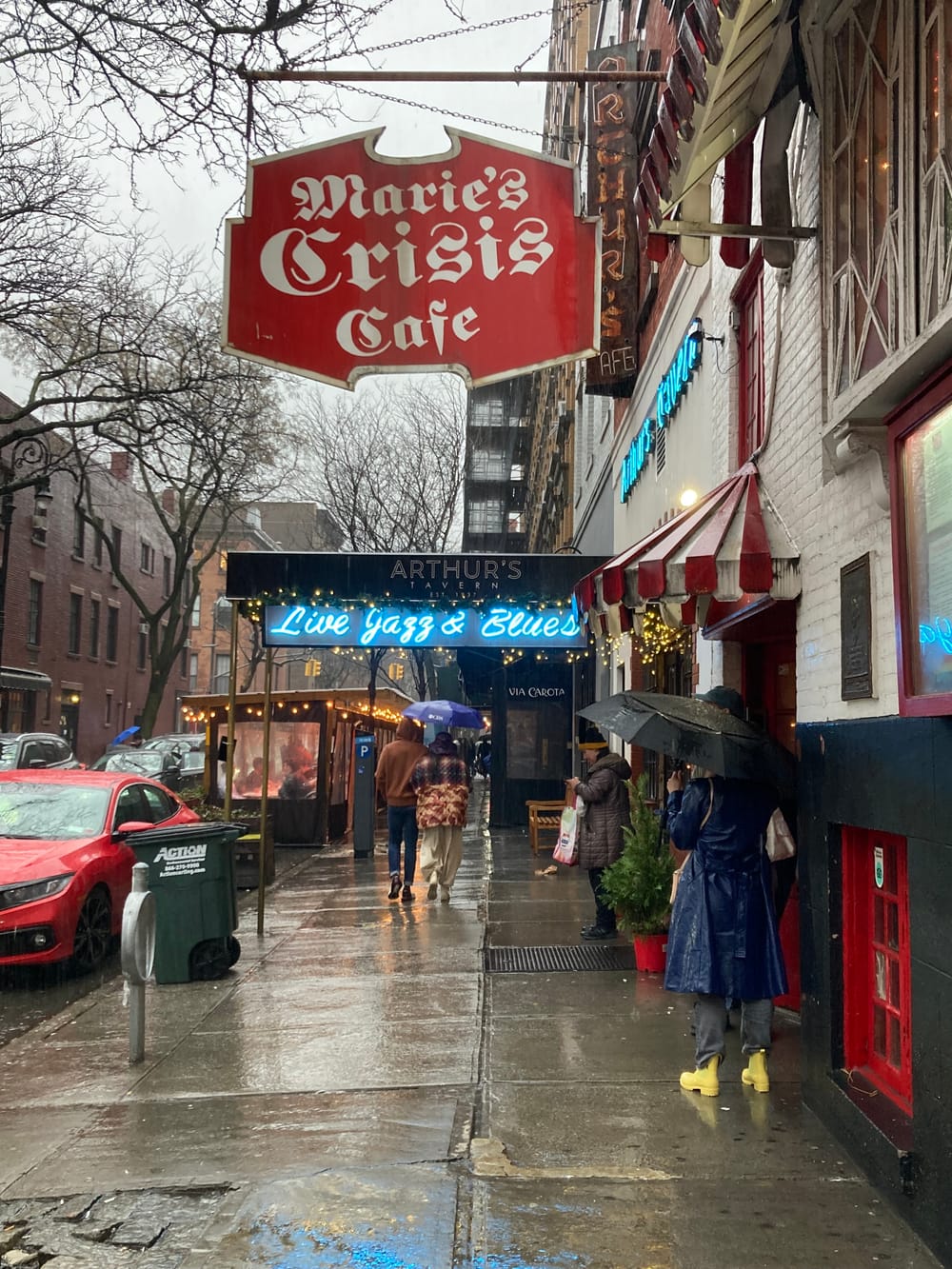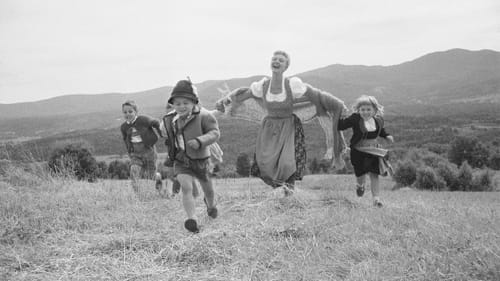Stay in the Loop
BSR publishes on a weekly schedule, with an email newsletter every Wednesday and Thursday morning. There’s no paywall, and subscribing is always free.
The soundtrack of our way out
These basement singalongs queer the Broadway canon and help me reclaim my voice

Mr. Hawthorne said I couldn’t sing.
And I believed him because he was the junior high music teacher and I was 13. I wanted to be in the choir because my friends were in the choir. So I auditioned one Tuesday afternoon in a windowless room furnished with metal folding chairs, a set of auto-harps, and a piano that had seen more sprightly days.
Mr. Hawthorne stopped me after two quavering measures of “Morning Has Broken.”
“Anndee, you have many talents,” he said, “but I’m afraid music is not among them.”
I fled the choir room in tears and didn’t sing again—at least, not where anyone could hear me—for two more decades.
Singing, alone
In the meantime, in the alternate, aspirational, richly imagined life that makes middle school bearable—especially when you are a myopic, frizz-haired, unathletic brainiac with (according to Mr. Hawthorne) lousy pitch—I sang all the time. In my fantasies, I had the lungs of Ethel Merman, the dulcet range of Julie Andrews, and the velvet timbre of Ben Vereen. I didn’t just sing. I peeled paint off the theater’s soaring atrium. I trembled the chandeliers.
My parents had been taking me to musicals since I was small enough to need a booster seat: Guys and Dolls at Philly’s Playhouse in the Park; Dames at Sea, tantalizingly late at night, on a family trip to San Francisco; Pippin at a regional theater; A Chorus Line when it first hit Broadway.
At home, I gently placed LPs on the turntable and stretched out on the red shag carpet, inches from the speaker’s fibrous face. I was Adelaide with her nasally grippe; I was Sky Masterson summoning Lady Luck. Or Pippin, trying to find my co-or-ner of the sky. I was on the cusp of adolescence, with all its misery, possibility, and loneliness, yearning for a soundtrack that would fit.
Wonderful in every way
Half a century blinks by. I am in a basement with a battered old upright and a handful of bare wooden tables, and I am singing. Because that’s what people do at this oddly named spot, Marie’s Crisis Cafe in Manhattan’s West Village. Every night, a pianist shows up and plays show tunes, nothing but show tunes, for hours, and the crowd choruses along.
My partner, Elissa, and I watch folks enter—bohemians and bougies, longtime denizens, and pop-eyed tourists. Some hug; others make room at their cramped tables. There’s a woman on a bar stool: trench coat, elegant chignon. Another who shucks her jacket to reveal a rhinestone-studded camisole. A big guy, hands shoved in pockets, who knows every lyric to every song. A 70-something mother and her daughter—we exchange the gay-dar yep, me, too nod—at the table next to ours.
The piano player launches into a tune I recognize: I can still picture the album cover of Annie Get Your Gun with Ethel Merman in cowgirl duds and a rifle clutched in her right hand. The tenor in the corner closes his eyes and croons: “To hold a man in your arms is won-der-ful, it’s wonderful in every way.”
And with that, the entire Broadway canon starts to feel a little … queer.
A welcome subtext
The pianist segues into “Hello, Dolly!” What could be campier, I think, than Barbra Streisand in a bronze, beaded get-up glittery as any drag queen’s, swanning around that banquet room to the delight of the waiters (some of whom, surely, were gay)?
In this crowd, even the most gender-bound score acquires a winking subtext. Mother Superior in The Sound of Music? Definitely a closet butch. Or that song about the non-conforming young novitiate: “How do you find a word that means Maria? A flibbertigibbet, a willow-the-wisp, a clown?”
Um … how about “a lesbian”?

And I start to remember that my alternate existence as a too-shy-to-speak 8th grader meant singing the men’s parts along with the women’s. I couldn’t match Isabel Bigley’s soprano reach (“If I Were a Bell” from Guys and Dolls), but I could render Rex Harrison’s half-spoken “I’ve Grown Accustomed to Her Face” from My Fair Lady. Her face, indeed.
Before I had a clue that I was queer, I tried these parts on for size, playing with gender, voice, and attitude (if only in the privacy of the car and shower). And when the shows became more exuberantly gay, other doors swung open. A Chorus Line. Falsettos. Fun Home.
Singing my way out
Uptown, orchestra seats sell for $400, and only a few hopefuls ever make it to the stage. But in this Grove Street basement, no one’s seeking solo turns in a topaz coin of light. Instead, we’re belting out the songs that helped make us us.
As Elissa and I stand to leave, the woman on my left (mom of the mother/daughter duo) taps my arm. “You have a lovely voice. An alto?”
I remember how fervently I wanted to be not-myself at age 13. How Broadway musicals—with their twist of conventionality and rule-bending moxie—showed me multiple ways out. How a teacher tried (and failed) to mute my voice.
“Yes,” I tell her. “I’m an alto. Thank you.”
We stay for just one more. The pianist tickles the opening notes of “There’s No Business Like Show Business” and I join the thrum of voices, a poke in the eye of anyone who ever told a kid they couldn’t follow an inner flame.
I look around: a motley chorus spanning, by my guess, six decades. Collectively, we’ve lived through coming out and gay-bashing and AIDS. We’re living through Covid-19, climate chaos, the dismantling of democracy. And still, there are moments when something fizzes up inside, and there is nothing to do but open your mouth (cue a rueful nod to Mr. Hawthorne) and sing.
At top: Approaching Marie’s Crisis Café on a rainy day. (Photo by Anndee Hochman.)
Sign up for our newsletter
All of the week's new articles, all in one place. Sign up for the free weekly BSR newsletters, and don't miss a conversation.

 Anndee Hochman
Anndee Hochman